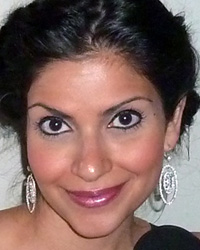More than 60 percent of the population in U.S. prisons are minorities, and by some accounts, the three largest mental health facilities in the country are prisons. CFYM continues its interview with attorney, author and mental health activist Melody Moezzi as she points to educating ourselves and the public about our legal rights as a means to righting these injustices.
Criminalizing Mental Health in the United States
CFYM: Melody, in addition to being an award-winning author, you are a public speaker, attorney and an advocate, you also have a Masters in public health. What changes would you like to see in public health policy with respect to mental health care?
MM: First, we need to stop criminalizing mental illness in the US. The three largest mental health facilities in this country are prisons. That’s beyond unacceptable, and it needs to change, particularly in a country that imprisons more of its citizens than any other on the planet. Furthermore, the use of solitary confinement—both in prisons and hospitals—needs to end. I feel very strongly about this because I’ve experienced “isolation,” and I have no doubt that it is cruel, unusual and downright inhuman. No human being is meant to live like that, even for a short period of time. We are social creatures. We need contact with others; we need compassion; we need connection—especially when we’re going through a crisis. That’s just human nature.












Connect With Us